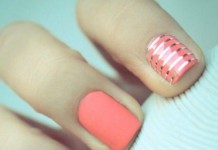Not just men,but thinning hair, hair loss and pattern baldness are also common in women. Reasons can be vitamin deficiency, stress, underlying health problems or hormones.
Most of the cases can be treated with care and caution and depends on the cause. Let us check some major causes for losing more hair.
1. Physical stress
Any kind of physical trauma—surgery, a car accident, or a severe illness, even the flu—can cause temporary hair loss. This can trigger a type of hair loss called telogen effluvium. Hair loss often becomes noticeable three-to-six months after the trauma.
Remedy: Hair will start growing back as your body recovers. Take utmost care to recover soon. Take multivitamin supplements.
2. Pregnancy
Pregnancy is also a kind of physical stress that can cause hair loss along with hormone changes. You may not experience hair fall during pregnancy but it is often after delivery you start losing more hair since giving birth is traumatic.
Remedy: Your hair will grow back in a couple of months. Include food rich in iron and folic acid in your diet.
3. Too much vitamin A
Taking too much Vitamin-A supplements can trigger hair loss. The Daily Value for vitamin A is 5,000 International Units (IU) per day for adults and kids over age 4.
Remedy: Check the labels and avoid the excess vitamin-A dosage and hair should grow normally.
4. Lack of protein
After 2-3 months you drop your protein intake, you may start losing more hair. If your body doesn’t get enough protein, it will stop supplying any proteins to your hair.
Remedy: Eat fish, meat, and eggs regularly.
5. Heredity
Female-pattern hair loss, called androgenic or androgenetic alopecia, is basically the female version of male pattern baldness. If you come from a family where women started losing hair at a certain age, you are prone to lose hair when you attain about the same age. You may notice the mid part of your scalp getting thinned or some other patterned hair loss.
Remedy: Like men, women may benefit from minoxidil (Rogaine) to help grow hair, or at least, maintain the hair you have. Take care to avoid stress and anxiety. Include nutritious food in your diet and avoid the junk.
6. Female hormones
Hormone changes can also cause telogen effluvium, and it may be more likely if you have a family history of hair loss. The change in the hormonal balance that occurs at menopause may also have the same result.
Remedy: If a new birth control pill is a problem, talk to your doctor about other birth control types. Stopping oral contraceptives can also sometimes cause hair loss, but this is temporary. Don’t make your problem worse with hair-damaging beauty regimens.
7. Emotional stress
Emotional stress is less likely to cause hair loss than physical stress, but it will trigger it if you already have the problem.
Remedy: Take steps to combat stress and anxiety like getting more exercise or getting more support if you need it.
8. Anemia
Almost one in 10 women aged 20 through 49 suffers from anemia due to an iron deficiency (the most common type of anemia), which is an easily fixable cause of hair loss. In addition to hair loss, other symptoms of anemia include fatigue, headache, dizziness, pale skin, and cold hands and feet.
Remedy: A simple iron supplement should correct the problem. Take diet rich in iron such as spinach.
9. Hypothyroidism
Hypothyroidism is the medical term for having an under active thyroid gland. When this gland is not pumping out enough hormones required by your body, it can contribute to hair loss.
Remedy: Thyroid medication will take care of the problem. Once your thyroid levels return to normal, so should your hair.
10. Vitamin B deficiency
Vitamin B deficiency is another underlying cause for hair loss. Vitamin B complex deficiency is common in India and more particularly the vegetarians.
Remedy: Simple supplementation and dietary changes can help to overcome the problem. Fish, meat, starchy vegetables, nuts and non-citrus fruits will be good for overall health and also control hair fall.
11. Autoimmune-related hair loss
This is also called alopecia areata and basically is a result of an overactive immune system.
Remedy: Steroid injections are the first line of treatment for alopecia areata, which appears as hair loss in round patches on the head. Other drugs, including Rogaine, may also be used.
12. Sudden weight loss
Sudden weight loss can shock the body and can result in thinning hair. This could happen even if the weight loss is ultimately good for you.
Remedy: Your hair fall may stop within a period of six months. Include foods rich in iron in your diet.
13. Chemotherapy
Chemotherapy is like a nuclear bomb, it destroys rapidly dividing cells , not only cancer cells, but also rapidly dividing cells like hair.
Remedy: Once chemotherapy is stopped, your hair will grow back although often it will come back with a different texture.
14. Polycystic ovary syndrome
Polycystic ovary syndrome (PCOS) is an imbalance in male and female sex hormones. An excess of androgens can lead to ovarian cysts, weight gain, a higher risk of diabetes, changes in your menstrual period, infertility, as well as hair thinning.
Remedy: Treating PCOS can correct the hormone imbalance and help reverse some of these changes. Healthy diet, exercise, and potentially birth control pills, as well as specific treatment to address infertility or diabetes risk can help in treating the hair fall.
15. Antidepressants, blood thinners, and more
Certain other classes of medication may also promote hair loss. More common among them are certain blood thinners and the blood-pressure drugs known as beta-blockers. Other drugs that might cause hair loss include methotrexate (used to treat rheumatic conditions and some skin conditions), lithium (for bipolar disorder), nonsteroidal anti-inflammatory drugs (NSAIDs) including ibuprofen, and possibly antidepressants.
Remedy: If your doctor determines that one or more of your medications is causing hair loss, talk with him or her about either lowering the dose or switching to another medicine.
16. Overstyling
Vigorous styling and hair treatments over the years can cause your hair to fall out. Tight braids, hair weaves as well as chemical relaxers to straighten your hair, hot-oil treatments or any kind of harsh chemical or high heat can actually affect the hair root and cause heavy hair loss and also stops new hair growth.
Remedy: In addition to avoiding these styles and treatments, use conditioner after every shampoo, let your hair air dry, limit the amount of time the curling iron comes in contact with your hair and use heat-driven products no more than once a week.
17. Trichotillomania
Trichotillomania, classified as an “impulse control disorder,” causes people to compulsively pull their hair out. Unfortunately, this constant playing and pulling can cause the hair to fall.
Remedy: Some antidepressants may be effective, but behavioral therapy is another option.
18. Aging
It’s not uncommon to see hair loss or thinning of the hair in women as they enter their 50s and 60s.
Remedy: There are plenty of tricks to prevent hair breakage and natural ways to keep your hair looking shiny and healthy in your 50s and above. Try the natural hair masks to nourish the hair and scalp. Take iron supplements and healthy diet.










Thank u